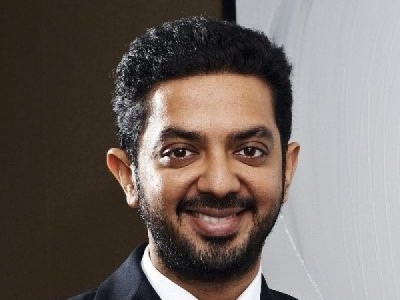
Posted on August 1, 2016
Shalabh Mittal, MD & CEO, Mercator an interview to CNBC-TV18 while sharing his views on first quarter numbers and business outlook going forward said in the quarter gone by they managed to post growth in most segments, especially in the dredging and tanker business.
With improvement in efficiencies along with reduction in costs for the dredging business, they managed to record profits, said Mittal. Dredging is basically a very stable business and not cyclical like shipping, he said. Mercator now being the second largest dredging company in India is poised to capture growth that will draw from the government’s plan to invest in marine infrastructure, said Mittal.
Mercator Limited for the quarter ended June 30, reported a consolidated net profit at Rs 16.6 crore versus a loss of Rs 35.4 crore for the year-ago same quarter.
Mercator earlier known as Mercator Lines) is a Mumbai-based International organisation. As a group, Mercator has diversified business interests in coal, oil & gas, commodity transportation and dredging.
The YoY total income was down 18.7 percent at Rs 584.2 crore versus Rs 718.4 crore. The consolidated EBITDA margins came in at 29.4 percent versus 17.6 percent YoY.
Below is the verbatim transcript of Shalabh Mittal’s interview to Surabhi Upadhyay on CNBC-TV18.
Q: Could you just take us through some of the factors that were at play in the quarter gone by and whether the return to profitability this quarter looks sustainable?
A: Yes, I think sustainable it is. We have done better on most parts of our businesses, so we have dredging business, which has done better than last year and so as our tanker business and we also managed to improve our operating efficiency on dredging business as well as reduce our expenses, which has resulted in the profits.
Q: I believe there was a sale of the Singapore subsidiary, is that process complete? How much have you reduced your debt by and how much money did the company fetch because of that sales if it is complete?
A: It was more of a disposal, which we did early this year around January of 2016. As a result of which consolidated debt was reduced by about Rs 1,000 crore that process was complete, that is 100 percent shares sold of the company.
Q: What is the consolidated debt now with that sale out of the way?
A: It is about Rs 1,900 crore not including the working capital, including the working capital it will be about Rs 2,500 crore.
Q: So are you completely out of the dry bulk business now?
A: We still have two dry bulk ships in the Indian company, but that is a very small number of ships. Majority of our dry bulk ships were basically controlled through the subsidiary in Singapore which as you said we have sold.
Q: So what is the outlook on the dredging business, the tanker business and of course dry bulk considering you are still sort of partly in that operation as well?
A: I think overall for the commodity cycle, the worst is over. For the dredging business, it is a very stable business not cyclical at all unlike shipping and we have a large part of our assets covered by contracts. So it will become stable and presentable for this year. We are now as a company we are the second largest dredging company in India which makes us into a very good leadership position to capture the growth as well, which the Government of India is planning in terms of the huge spent on money on infrastructure plus tankers again all tankers are fixed on contracts, so that is all fixed there. For bulkers, we have two bulkers, the market has improved for bulkers as well so going forward we will see slightly better numbers.
Q: Finally, can you give us a sense of top line growth that we can expect, given what you describe in the different business segment?
A: We don’t give projections at all, but overall this year should be quite good, we are quite excited about this.
Source: moneycontrol





